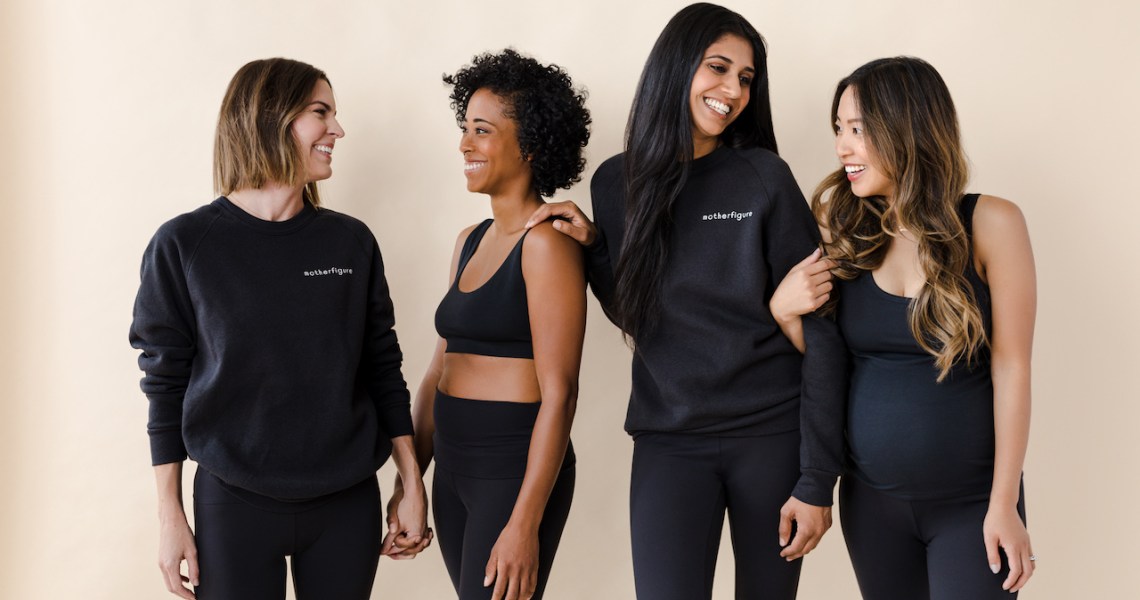Out of the consumer groups experiencing the most anxiety during coronavirus, pregnant women have to be near the top of the list.
Maternal wellness companies, that sell products ranging from belly masks and oils to stretch mark cream, have driven a larger consumer category that caters to the unique demands of expecting mothers. But with maternity-related anxiety at an all-time high, it is a sensitive time for brands to approach marketing and communications.
The growing assortment of maternal wellness product launches has continued unabated in 2020, both before and after the Covid-19 shutdowns. In January, Jessica Alba’s The Honest Company launched its new Honest Mama collection for expecting mothers. In March, Clarins launched a new “mom-friendly formula” for its Body Partner stretch mark cream. Esker Beauty will be launching two new belly oils for Mother’s Day in May — they are based on its existing body oils, but formulated specifically for expecting mothers and highlight less scent for those prone to nausea, for example.
“A couple years ago, there was pretty much nothing,” said Shannon Davenport, the founder of Esker, regarding maternal beauty products, especially in the clean beauty category. She decided to prepare for the new product launch to coincide with her own pregnancy. “We’ve had a lot of pregnant moms using our products. I always say that pregnancy is an intro to body care for a lot of people, because they don’t think about the skin on their body very much until it starts changing.”
But for expecting mothers, the Covid-19 pandemic has become a time of crisis and fear — not necessarily a time of consumerism.
“I can’t tell you how many times I’ve heard the phrase, ‘I feel like I’m hanging on by a thread,’” said Chelsea Allison, the founder of maternal wellness content and commerce startup Motherfigure, which offers a directory of professionals and birth centers, editorial content and a maternity wear e-commerce store. “And even more than anxiety, [users are asking] questions around ‘How do I keep my sanity?’ which is really heartbreaking to hear from new moms,” she said.
Even before the coronavirus pandemic hit, America had the worst maternal mortality rate in the developed world, with especially poor results for women of color. The pandemic’s strain on the health-care system is creating a demonstrably worse experience for women as hospitals shut down maternity wards to make room for Covid-19 patients. Some women have been forced to give birth in hospitals with no family or doulas allowed in the room, which prompted New York Governor Andrew Cuomo to issue an executive order banning this practice. And the fear of catching coronavirus looms large, especially of testing positive and being separated from their newborn for the 14-day quarantine period.
Ad position: web_incontent_pos1
“As a doula, it makes me both terrified and angry” that women have been forced to give birth alone, said Bri Braggs, the founder of Fertile Alchemy, a holistic lifestyle brand focused on fertility. “The birth outcomes are often very different than they would be if she did have support.”
Maternal wellness brands have shifted their messaging as a result of these circumstances.
“It’s less, for me, about promoting or selling something and more about just checking in and being honest about what I’m going through and then also asking them, ‘How are you feeling?'” said Braggs. “I just don’t feel right, morally, promoting something in the sense of like, ‘Hey buy my products now.'”
“Our entire communication strategy had to shift with this, so that we weren’t tone-deaf to what was happening around us and what women were going through,” said Ariane Goldman, the CEO of Hatch, a maternity wear and beauty brand. With increased uncertainty around health guidelines and policies, the company launched a Covid-19 resource page on Wednesday. It also scrapped a colorful spring campaign focused on going outside.
As a content and commerce startup, Motherfigure is also increasing Covid-19-related resources for mothers. The company was founded based on an already existing lack of information around childbirth in the U.S., said Allison, who noted that content on basic topics like feeding and sleeping has been more popular than questions about skin care in the past several weeks.
Ad position: web_incontent_pos2
“I think it goes back a little bit to the hierarchy of needs. People’s basic needs aren’t getting met in this time, what we are seeing is more focused on some pretty practical insights.”
Brand founders’ personal experiences with pregnancy and childbirth during the Covid-19 quarantine have also influenced their communication with customers.
“It definitely made me more empathetic to what other people are going through,” said Braggs, who gave birth to her son at the beginning of March. “Luckily, I had him at home, so I didn’t face the fear of birthing alone in the hospital, but that’s a huge fear for everyone that I’m talking to.”
“We want to make a product by a pregnant woman for pregnant women, and we want to also just support the ritual aspect of our brand” with regard to self-care, said Davenport, who is in the 35th week of her pregnancy. “We feel that it’s really important for pregnant women to be there for each other.”
Despite all the concerns, demand is still strong for maternal wellness products as women are still showing interest in self-care. Hatch, for example, has not been hitting its full growth rate of 40%, but has seen a 180% year-on-year increase in DTC sales of its belly oil. Goldman said that the brand has been seeing especially strong demand in beauty products, intimates and loungewear, as it emphasizes “self-care and indulgence.”
“There’s a lot of uncertainty anyway with giving birth; it’s such a vulnerable time,” said Davenport. “You just have to do whatever you can to try to take care of yourself.”




